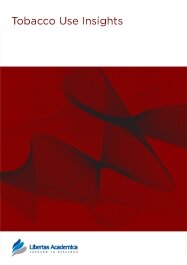

Publication Date: 20 Feb 2012
Type: Short Report
Journal: Tobacco Use Insights
Citation: Tobacco Use Insights 2012:5 1-9
doi: 10.4137/TUI.S8523

Objective: Assessment of the subjective and physiological effects of smoking cigarettes with different machine-smoked nicotine yields.
Methods: Eight volunteers rated the characteristics of cigarettes with varying levels of nicotine (Quest®). At 30 minute intervals, participants smoked one of three different Quest® brand cigarettes in a counterbalanced order (reported machine-smoked nicotine yield: 0.6 mg, 0.3 mg, or 0.05 mg). Smoking satisfaction and sensations were measured on a cigarette evaluation questionnaire. A mood questionnaire measured self-reported subjective changes in 'happy', 'stimulated', 'anxious', 'desire to smoke', and 'desire not to smoke'. Heart rate and skin temperature were recorded continuously.
Results: As nicotine yield decreased, cigarettes produced smaller changes in subjective ratings on the evaluation questionnaire with the placebo nicotine cigarette always rated lower or less potent than the other two cigarettes evaluated. Heart rate was significantly increased by the reduced nicotine cigarettes, but was not affected by the nicotine-free cigarette.
Conclusion: These results indicate that machine-smoked yield is an important determinant of both the subjective and physiological effects of smoking. The use of reduced and nicotine free cigarettes in smoking cessation programs remains to be evaluated.
PDF (629.77 KB PDF FORMAT)
RIS citation (ENDNOTE, REFERENCE MANAGER, PROCITE, REFWORKS)
BibTex citation (BIBDESK, LATEX)

The review process in Libertas Academica journals is prompt, objective and rigorous. The entire process is smooth and clear and all the editorial staff are cooperative and professional. Published papers are of top clinical and scientific value, and high metrics reflect the excellent quality of Libertas Academica's journals.
Facebook Google+ Twitter
Pinterest Tumblr YouTube